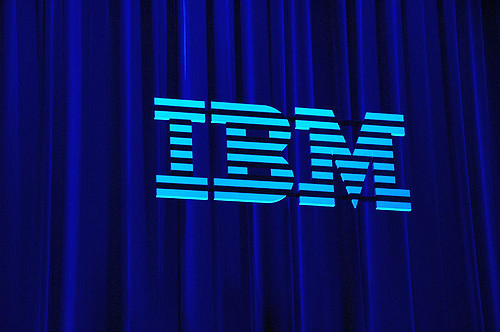 BIG DATA
BIG DATA
 BIG DATA
BIG DATA
 BIG DATA
BIG DATA
Playing catch-up to its main cloud rivals, IBM Corp. Monday launched a competing physical cloud mass data migration service, designed to take on similar offerings from Amazon Web Services Inc., Microsoft Azure and Google Cloud Platform.
IBM’s Cloud Mass Data Migration service allows customers to physically ship terabytes of data from their on-premises data centers to one of its Bluemix cloud data centers. Doing so is much faster than trying to transfer that amount of data over the web, which could potentially take weeks depending on the available bandwidth.
The idea of physically shipping out data to the cloud was first dreamed up by AWS, which introduced its Snowball device back in October 2015. Microsoft Corp. quickly followed up with its Import/Export service that allows customers to ship data on hard drives via DHL, United Parcel Service, Federal Express or U.S. Postal Service delivery services. Meanwhile, Google LLC recently launched a beta of its own Transfer Appliances that serve the same purpose.
IBM said in a blog post that its data shipping device, which can store up to 120TB, can be rented out at a flat rate of $395 per time.
The service works like this: Customers submit a “mass data migration” request, and then IBM ships out one of its devices. This is then connected to the customer’s network so the data can be uploaded and encrypted, before it’s shipped back to IBM, which then transfers the data into its cloud object storage platform. Once the data has been uploaded there, IBM wipes the device to ensure the data can’t be stolen by the next customer.
IBM is pitching the service as a fast and straightforward way to move data to the cloud “without disrupting daily operations.” The company also said the service could be used to free up on-premises storage, or create data archives or media repositories. IBM also pointed out how the service might be useful to remote users with little to no Internet access, for example container ships, offshore oil rigs and remote farms in the countryside.
IBM’s pricing seems competitive compared to its rivals. With AWS, pricing is not clear as the service requires a sales call for it to evaluate customer’s needs and the associated costs. Microsoft Azure charges a flat fee of $80 per device, but customers must pay for the shipping costs upon return. Google’s service starts at $300 for its 100TB appliance and $1,800 for its larger 480TB device.
Support our mission to keep content open and free by engaging with theCUBE community. Join theCUBE’s Alumni Trust Network, where technology leaders connect, share intelligence and create opportunities.
Founded by tech visionaries John Furrier and Dave Vellante, SiliconANGLE Media has built a dynamic ecosystem of industry-leading digital media brands that reach 15+ million elite tech professionals. Our new proprietary theCUBE AI Video Cloud is breaking ground in audience interaction, leveraging theCUBEai.com neural network to help technology companies make data-driven decisions and stay at the forefront of industry conversations.